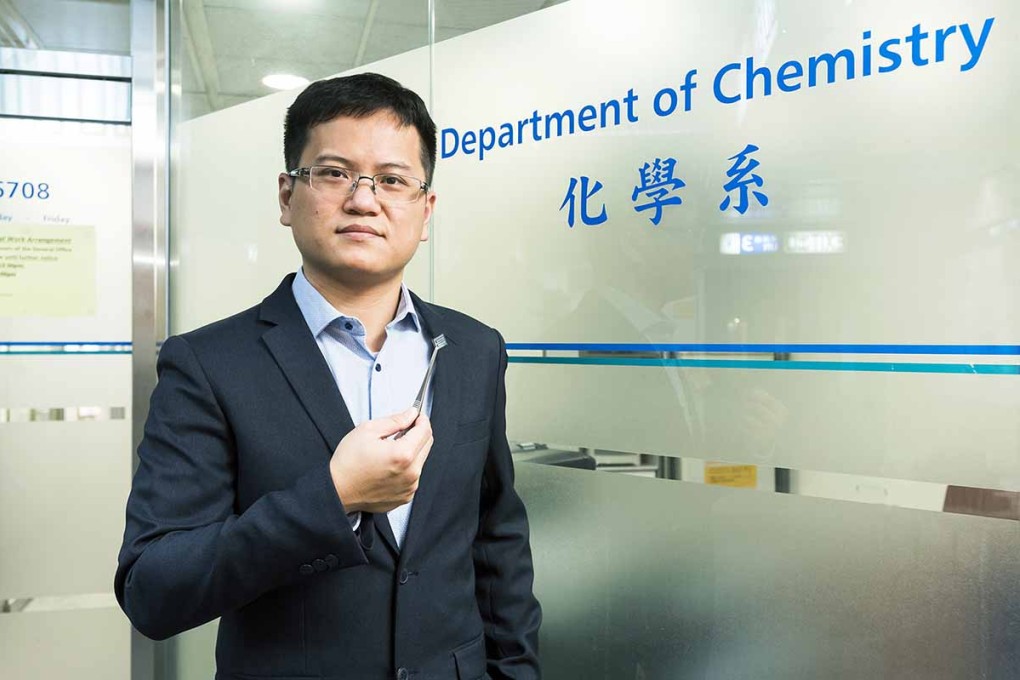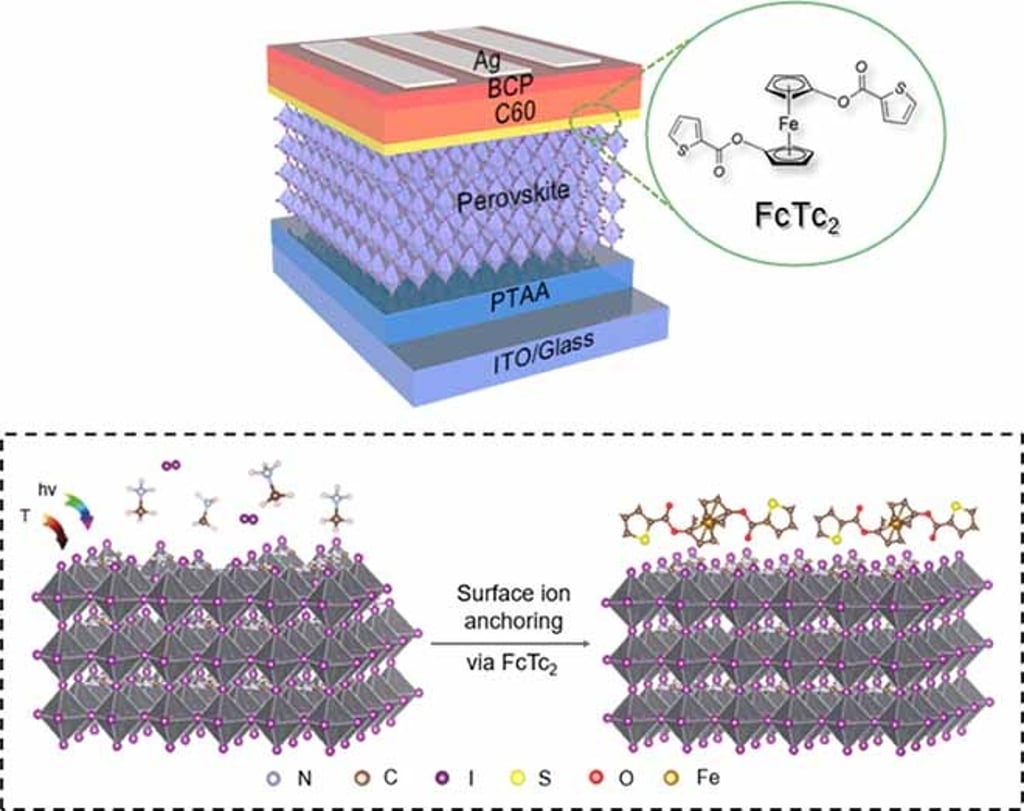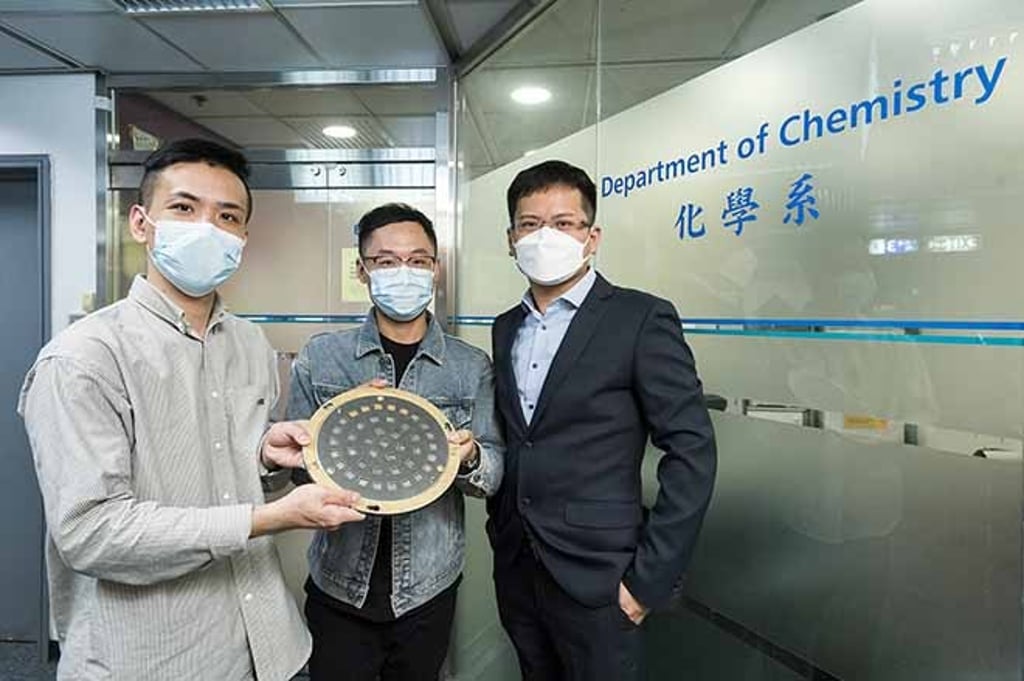Research co-led by CityU boosts efficiency of perovskite solar cells to record high
- CityU chemists develop a strategy for highly efficient and stable perovskite solar cells
- The first team to boost the efficiency of inverted perovskite solar cells to 25% and pass the stability test

[Sponsored Article]
An international research team co-led by City University of Hong Kong (CityU) is accelerating the commercialisation of perovskite photovoltaic technology with a new approach that boosts the efficiency of inverted perovskite solar cells (PSCs) to a record high of 25%.
The team’s innovative approach involves applying a ferrocene-based organometallic compound called ferrocenyl-bis-thiophene-2-carboxylate (FcTc2) as the interfacial material to improve the efficiency and stability of inverted PSCs.
“We are the first team to boost the efficiency of inverted PSCs to 25% and pass the stability test set by the International Electrotechnical Commission,” said Dr Zhu Zonglong, Assistant Professor from the Department of Chemistry (CHEM).
The findings were published in the prestigious journal Science under the title “Organometallic-functionalised interfaces for highly efficient inverted perovskite solar cells”.
PSCs are a promising alternative to traditional silicon solar cells because of their low-cost, low-manufacturing temperature, and lightweight and flexible properties. They can be printed on plastic films as flexible solar cells or coated on window glass to absorb sunlight.
However, the operational lifetime of a device can be hampered by the chemically reactive components in perovskite materials that can become volatile and degrade under high temperatures and humidity.

“The unique properties of ferrocenes help to manage the problems faced by PSCs,” said Professor Nicholas J. Long from Imperial College London, an expert in organometallic compounds whose team developed the compound.
Dr Zhu added: “Ferrocenes can reduce the surface energy of the perovskite surface, enhancing both efficiency and stability.”
PSCs are made of layers of materials and the perovskite layer is for light harvesting. The ferrocene molecules accelerate the electron transfer from the perovskite active layer to the electron transporting layer, which further increases efficiency.
There is another merit to these organic groups, according to Dr Zhu. “The ferrocene-based organometallic compound firmly anchors the ion on the perovskite surface via a chemical bond, reducing the PSCs’ sensitivity to the external environment, and delaying the degradation process of a device,” he explained.
In the experiment, the CityU team showed that these newly invented solar cells could run under continuous light illumination for more than 1,500 hours and still maintain over 98% of their initial efficiency. The devices also met international standards for mature photovoltaics, exhibiting superior stability in a hot and humid environment (85 degrees Celsius and 85% humidity).
“The most challenging part of this work was fabricating highly efficient PSCs along with promising stability. The reliable results mean that the commercialisation of PSCs is on its way,” said Dr Zhu.
The collaboration team has already patented the technology. “We hope to further scale up the production of PSCs with this novel molecule and simple method, contributing to the global ‘zero-carbon’ sustainability goal,” he said.
Dr Zhu and Professor Long are the corresponding authors of the paper. The first authors are PhD students Li Zhen and Wu Xin, and postdoctoral research fellow Dr Li Bo, all from CHEM. The other CityU team members are Dr Zhang Shoufeng, a postdoctoral research fellow, and Gao Danpeng, a PhD student, also from CHEM.
The study was supported by CityU, the Innovation and Technology Fund, grants from the Early Career Scheme and the General Research Fund from the Research Grants Council of Hong Kong, and the Natural Science Foundation, Guangdong Province.
